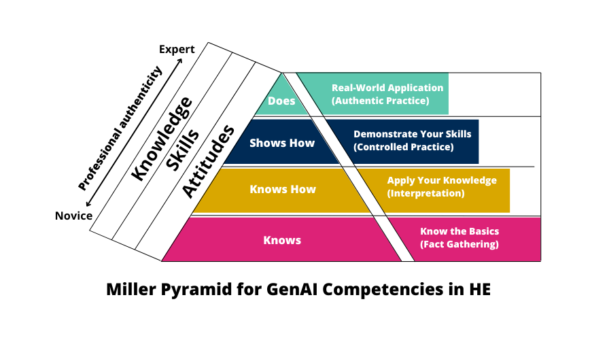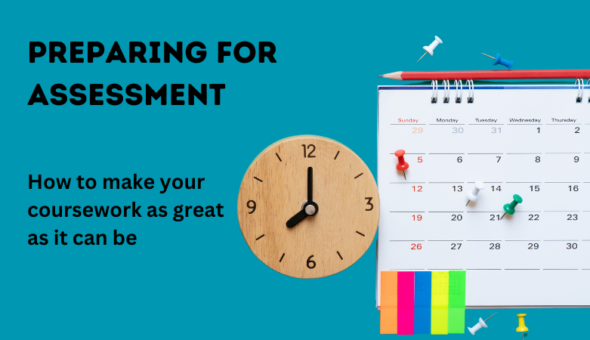As the University embraces the power of Generative Artificial Intelligence (GenAI), we've taken proactive steps to equip you with the knowledge and skills to navigate this rapidly evolving landscape. Over the last month, using the University of Bath Instagram account we've conducted a series of Instagram Quiz and Poll Stories, exploring various aspects of GenAI, from bias to ethics and information literacy.
Our initial Story on bias reached over 2,500 registered accounts, with 755 engagements. Subsequent Stories on critical thinking, data privacy, ethics, information literacy, and prompts saw even higher engagement, reaching up to 2,912 accounts and garnering up to 1,854 interactions.
The quiz results revealed some insightful findings:
- Bias Mitigation: 52% of respondents correctly identified "asking for counter arguments" as an effective approach to mitigate bias in GenAI.
- Data Provenance: 64% understood that data provenance is crucial for evaluating sources and potential biases.
- Critical Evaluation: 70% recognised the need to interrogate GenAI outputs for flaws or inconsistencies.
- Data Privacy: 75% identified the need to corroborate GenAI output references using other reliable sources.
- Ethics: 75% recognised that GenAI could pose risks of biased, inaccurate or harmful outputs.
- Information Literacy: 89% identified critically evaluating outputs as the most crucial GenAI information literacy skill.
- Prompts: 55% recognised that providing multiple examples and a clear pattern is an effective "few-shot" prompting approach.
However, the data also highlighted areas where students could benefit from further skills development. For instance, 29% of participants thought "repeating the prompt to check reliability" helps mitigate bias in GenAI tools. Additionally, 33% believed that "providing simple, clear instructions" would be most effective in improving GenAI output quality and validity.
Interestingly, our polls revealed:
- 59% identified confirmation bias as the most significant factor affecting their evaluation of GenAI responses.
- 92% believe AI will be a normal part of education in the future.
- 71% are more concerned about GenAI spreading misinformation than academic dishonesty.
- 75% were either alarmed or had no idea about GenAI data security and privacy.
- 64% think students should be required to disclose if they used GenAI to complete an assignment.
- 74% view reliable GenAI prompting as more of a science than an art.
To explore the nuances of GenAI further, we've created an introduction to Generative Artificial Intelligence (GenAI) Module. This offers a mix of content to not only familiarise yourself with GenAI tools but also to develop competencies in using them effectively and responsibly. The module includes resources on:
- Using AI tools for your work at university: discover how to strike the right balance between technological assistance and individual effort.
- GenAI Prompts: learn how to produce effective prompts and techniques that refine GenAI responses.
- GenAI Information Literacy: examine the strengths, limitations and ethical considerations associated with GenAI.
- GenAI Critical Thinking and Evaluation: develop your analytical skills and learn how to critically evaluate AI-generated content.
- GenAI Ethics: explore the key ethical implications relating to truth, privacy, and environmental impact.
- GenAI Biases: develop a critical awareness of biases in generative AI systems and human users when interacting with these systems.
- GenAI Data Privacy and Security: develop insights into the data privacy and security considerations of GenAI systems, including ethical data collection practices, secure data storage protocols, and responsible data sharing procedures.
- Academic Integrity in the Context of Generative Artificial Intelligence: learn about the importance of academic integrity and the university's policies and guidelines regarding the use of Generative Artificial Intelligence (GenAI), and how to maintain academic integrity when using GenAI tools.
Overall, it's crucial to approach GenAI tools thoughtfully. Let them inspire you, augment your skills, and expand your knowledge - but always maintain your human discretion, ethics, and critical thinking. We encourage you to engage with the GenAI Module to further develop your skills and understanding. The insights gathered from our Instagram Story series have been invaluable in tailoring this content to address your specific needs and knowledge gaps. By leveraging these resources, you'll be better equipped to use GenAI tools confidently and responsibly in your academic work and beyond. Remember, the goal is not just to use these tools, but to use them wisely and ethically in ways that enhance your learning and contribute positively to your educational journey.
Respond



